It might sound impossible that a person can make omelettes without breaking eggs. But this simple method created by Windell at Evil Mad Scientist Laboratories will show you how you can get pretty close and amaze your family and friends with such an unusual breakfast.
Find a detailed instruction inside this post.
1. Puncture the egg.
If you don't have any tools to puncture the egg, you can do this quickly and reliably with just a toothpick, once you get the hang of it. Pick gently outward, up and away from the hole, from inside the edges.
2. Extract the contents with a syringe or compressed air.
The one "specialized" piece of equipment that you definitely need for this project is a wide-bore syringe. It is important to fully remove the contents. If you do not, you'll end up with a big and distracting blob of yolk in the middle of your finished omelette. This syringe has holes in the side, so it can't suck up the contents all the way to the bottom. Turn the egg upside down, and gently push air into it. The egg contents make an air seal against the needle, the egg pressurizes, and the contents will squeeze out alongside the needle. Be careful not to overpressurize the egg, or it will burst. A low-end aquarium pump with a soccer-ball needle can also be used to extract the contents this way.
3. Scramble and replace the contents.
Beat lightly, then inject back into the egg. Try to minimize bubble creation, and be sure not to overfill the shell. You may want to intentionally leave significant room for fillings.
4. Inject the omelette fillings.
Inject softened cream cheese into the egg. And as the shell fills up, you need to slow down and make sure no egg-liquid escapes out the hole. Be careful not to overpressure and crack the egg.
5. Vacuum-seal the egg in plastic.
Again, it's not absolutely necessary to use a vacuum sealer, but if you use a normal-pressure bag, you should try to get as much air out of it as possible.
6. Cook the egg.
Get a large pot of water and put it on the stovetop at the temperature of 70 degrees C or 158 F. Adjust the heat low and check the temperature once in a while to make sure you have it reduced.
To make a nice soft omelette, you need to cook it for about 30-45 minutes at 70 degrees C.
7. Retrieve the egg and serve it.
As it comes out of the bag - at perfect serving temperature incidentally - the egg will have some cooked-on leakage. It generally rubs off with a paper towel.

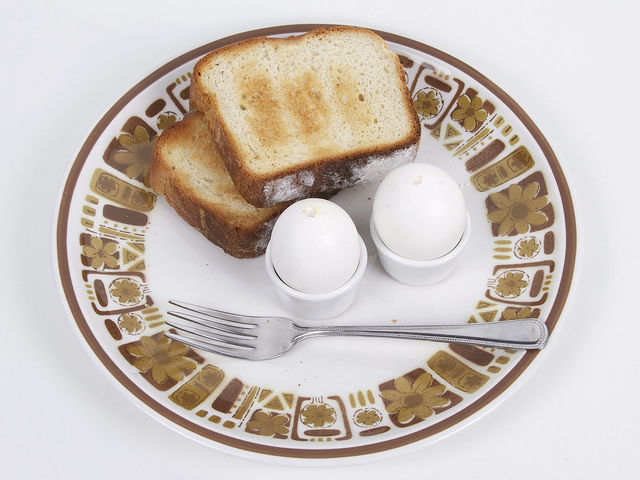
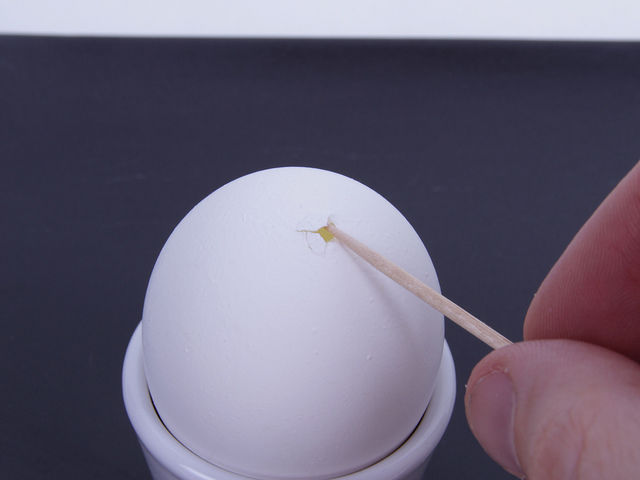
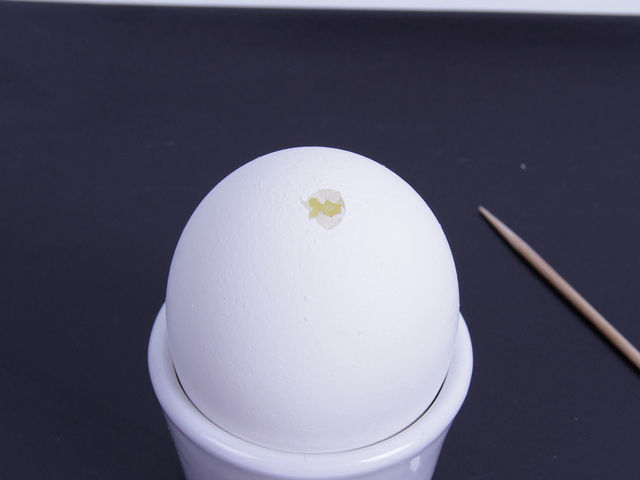
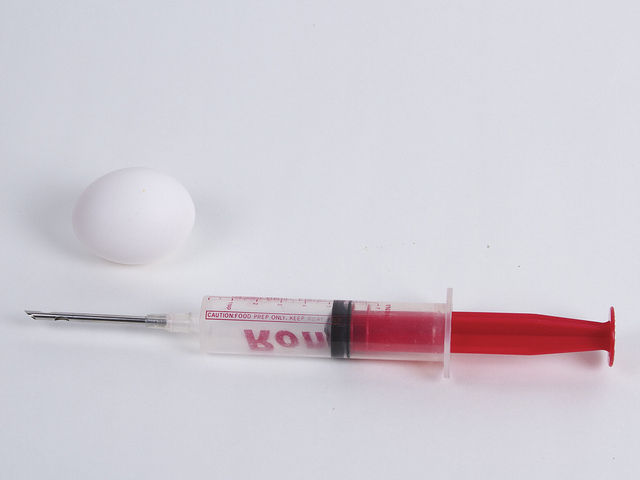
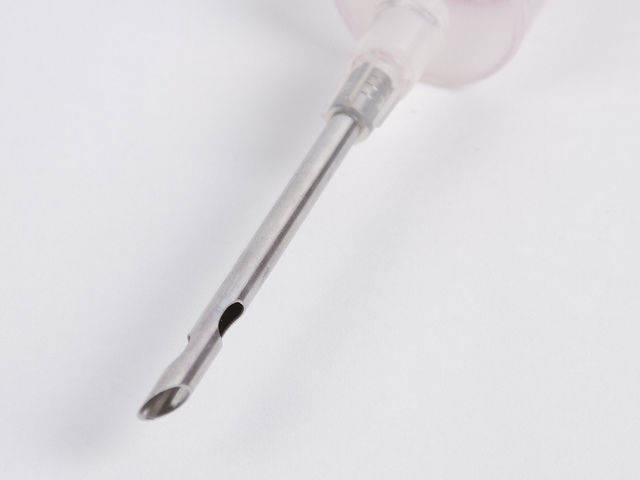
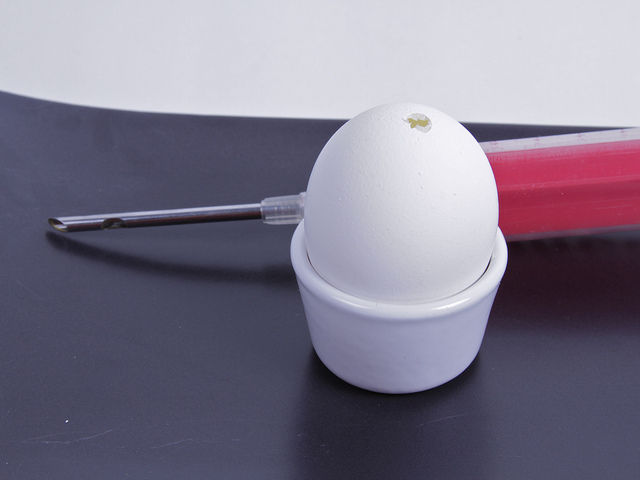
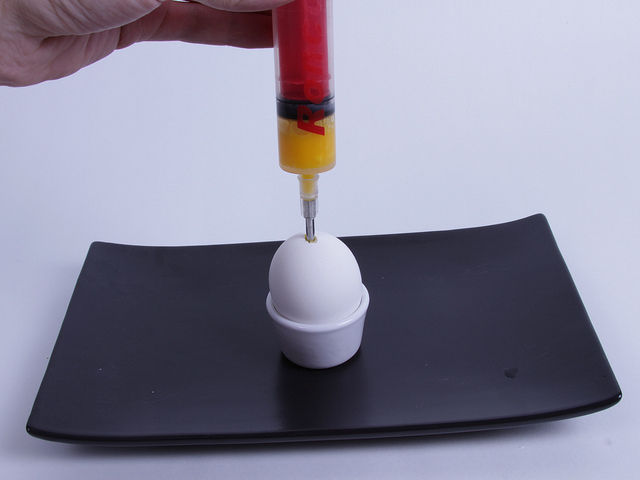
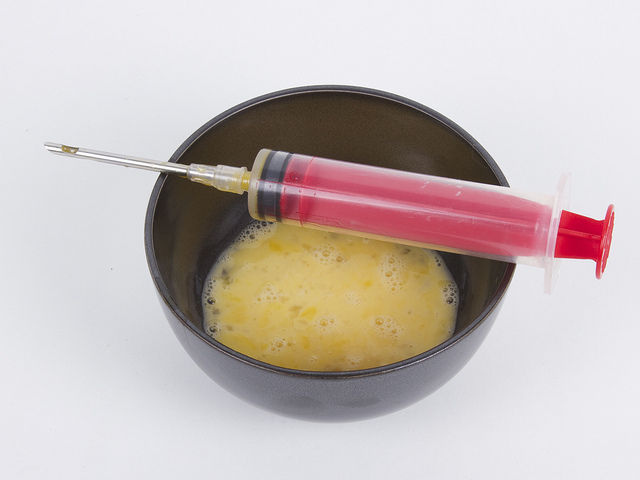
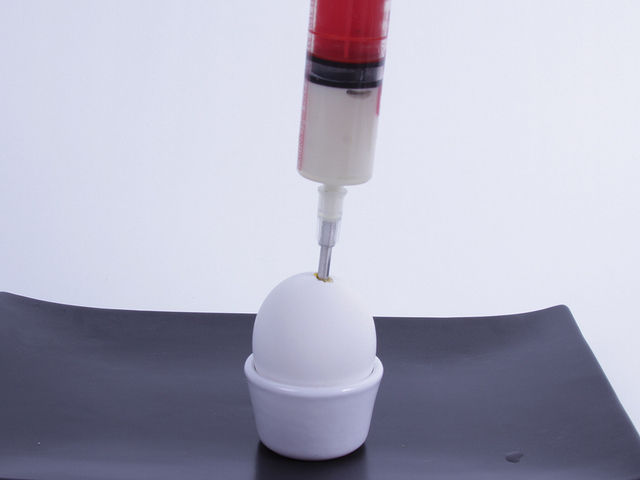
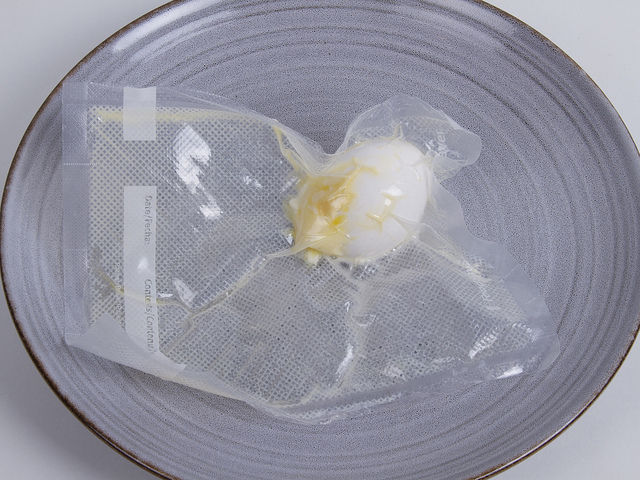
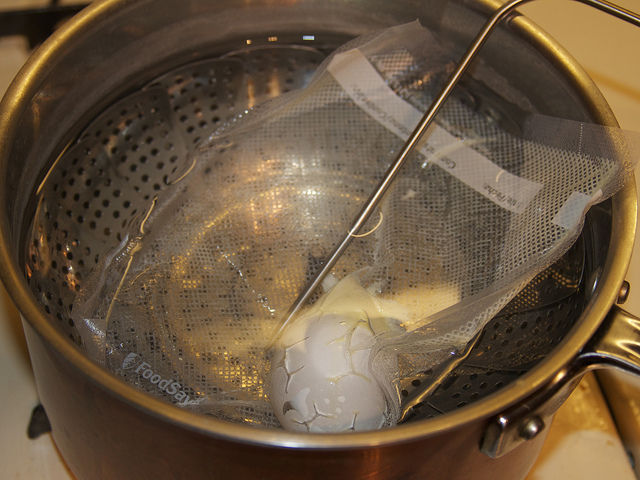
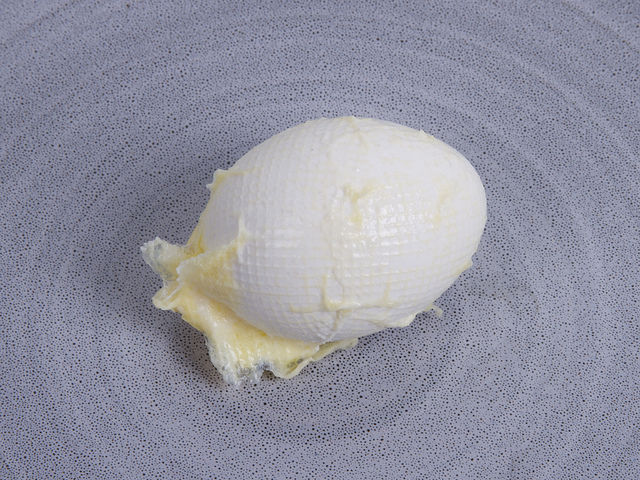
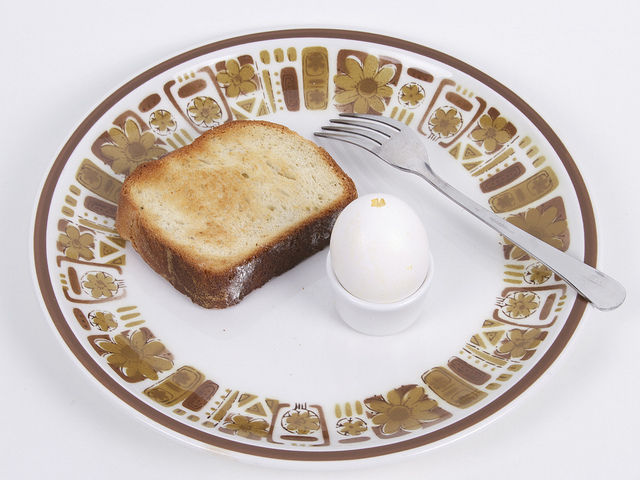
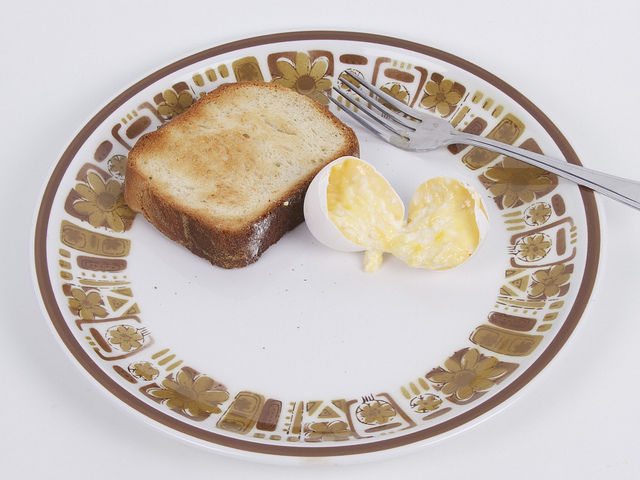
Yeak!
When was the last time you said "I really need a square egg for this recipe a "normal" egg just won't do". Now you can egg-terminate this egg-asperating problem
COOKING WITH GOODSTUFF - SQUARE EGGS
http://goodstuff4u.multiply.com/journal/item/79/
i will now do thias whenever i would like a nice messy omlette inside an egg,
yes.